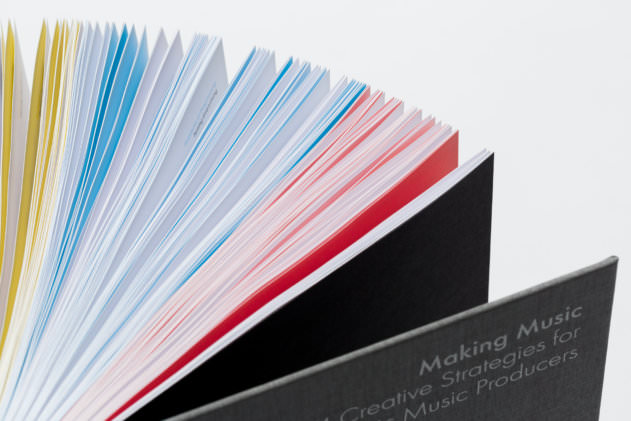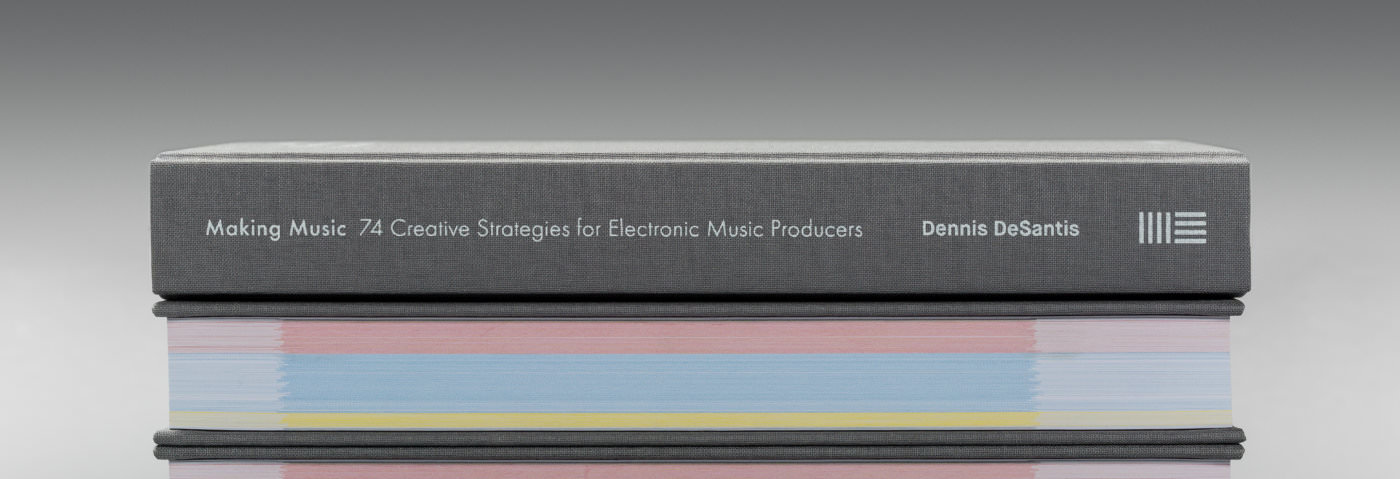Ableton’s first foray into publishing offers a series of occasionally abstract solutions to some of the common problems faced by electronic musicians.

The fundamental creative challenges of making electronic music are broadly similar to any other form of musical expression, but in between the initial creative spark and the end result, electronic musicians face a series of more specific problems, often imposed by the technology itself. In Making Music, Dennis DeSantis presents what he describes as 74 “creative strategies” for electronic music producers, primarily aimed at overcoming these common obstacles.
DeSantis (who’s responsible for writing Ableton‘s technical documentation) is classically trained, but relatively little of Making Music is concerned with musical theory or technical advice on specific musical tools. As the author puts it: “This book will not teach you how to use a compressor, program a synthesizer, or make a great-sounding kick drum. Those aspects of music-making are already well covered. What it will teach you is how to make music using those tools, with a specific emphasis on solving musical problems, making progress, and (most importantly) finishing what you start.”
Each of the three main sections – Problems of Beginning, Problems of Progressing and Problems of Finishing – is organised as a series of short ‘patterns’, presenting a problem and a solution. Some are common, simple problems (“You’re often not sure how to choose the right tempo”), while others are a little more esoteric (“Your melodies feel weak, aimless and wandering”).
The approaches and solutions outlined in Making Music are relatively abstract by the standards of most electronic music tutorials, although things do take a turn for more straightforward practical tips towards the middle of the book, in which DeSantis outlines a series of approaches to melody and harmony which draw lightly on music theory in a very practical way.
When the subject turns to specific tools and techniques, the focus is mainly on software, but it’s a mark of Ableton’s confidence in their own products that Live is barely mentioned. It’s clear that this is part of a very deliberate effort to ensure that all the advice on offer is applicable to as many producers’ needs as possible, regardless of DAW choice or indeed genre.
Overall, the approach is nowhere near as leftfield as something like Brian Eno and Peter Schmidt’s Oblique Strategies, but in terms of encouraging the musician to think laterally and consider alternative methods, there’s quite a lot of common ground. In fact, there are aphorisms dotted throughout the book that would almost fit into Oblique Strategies. Take, for example, the idea that “it’s much easier to decide that something is bad once it exists than it is to make something good from nothing”, from the “Write drunk; edit sober” pattern.
If there’s one weakness of the book’s piecemeal structure, it’s that it’s not always easy to identify flaws in your own creative process, so finding a potential solution hidden in the book’s 340 pages isn’t as straightforward as you would hope. Given that there’s no index (and very few cross-references between chapters) it’s not always easy to locate solutions. You may know that you’re slow at starting new tracks, for example, but it might not be immediately obvious from the title alone that the “Tyranny of the Default” process (on creating DAW templates) would help.
there are aphorisms dotted throughout the book that would almost fit into Oblique Strategies
Otherwise, there are very few criticisms of Making Music. The book takes an original approach which neatly appeals to both beginners and experienced producers without ever feeling patronising or overwhelmingly advanced. Making Music is emphatically not a how to book, but as a collection of ideas and processes it encourages you to think differently, break out of routines and unconscious habits, and overcome the obstacles which are holding back your creative process. Even if you’re not aware of any issues with the way you make music, there are countless ideas and suggestions that could trigger new track ideas or different ways of working.
As a company, Ableton has always gone against the grain. Live may now be a default choice for a large proportion of electronic music producers, but it’s worth remembering that the earlier versions of the software were quite different to any DAW or sequencer on the market at the time. Making Music shows a similarly forward-thinking approach: publishing books is not normal behaviour for a software developer, but Making Music isn’t a normal music book.

03.31 PM
Right what i need! Ordered it.